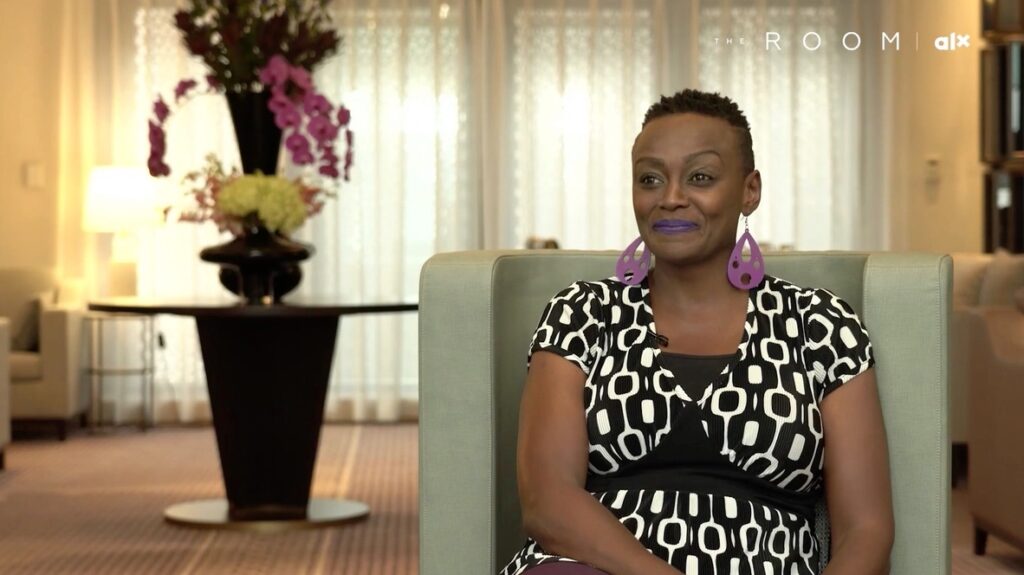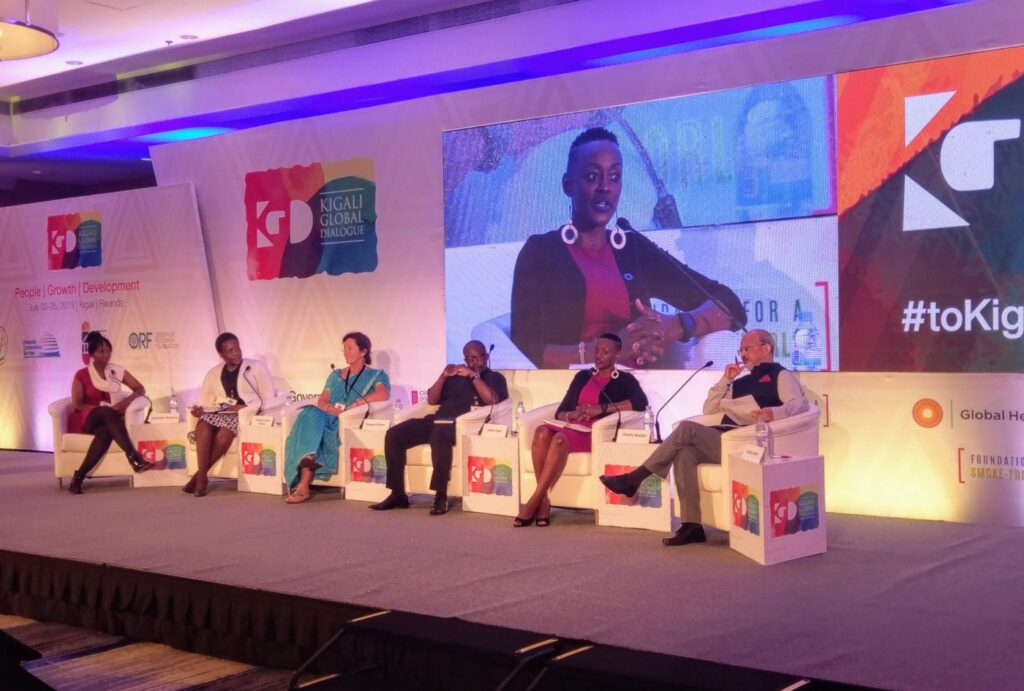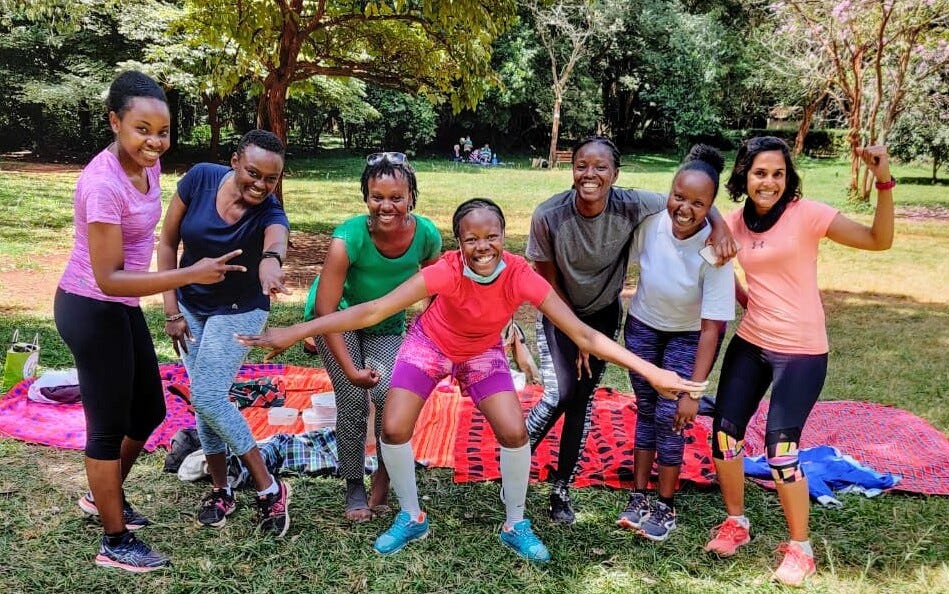How Women in STEM Can Navigate the Digital Revolution in Africa
- 14 Feb 2023
- 9 min read
Charity Wanjiku is a celebrated Kenyan entrepreneur and one of the World’s Top 50 Women in Tech, as recognised by Forbes and the World Economic Forum . She is the co-founder of Strauss Energy, the solar company that’s powering rural Kenya through reliable and affordable green energy, and her work extends to the architecture and construction industries too.
We had the honour of speaking to Charity at the 2022 Doha Forum, where she shared some of the hurdles and lessons from her remarkable journey in STEM and her passion for empowering girls and women in the industry, highlighting the critical importance of gaining tech knowledge and skills to survive and thrive in today’s digital age.

It’s not just about complaining and whining all the time; we need to teach society that women have got what it takes.
What challenges have you faced as a woman entrepreneur in the tech industry?
It is a very interesting journey when you are a woman. In the early days as a co-founder of Strauss Energy with my brother, it always seemed that having him in meetings would make things a little easier. As it were, showing up to meetings alone, it felt like my recipients would prefer to have him around. In those moments, I would state that I too can make informed decisions.
I have learned to live with behaviour like that. I’ve found that it’s not just about complaining and whining all the time; we need to teach society that women have got what it takes. We have the brains and we have the capacity. We can make the million-dollar decisions at the table and sign the papers, and they do not need to be cosigned by a man. And yes, we can make use of money as well; investments are safe with us. People don’t need to worry just because we’re women.
How have you been able to survive and thrive in these male-dominated spaces?
I always say that I am a work-in-progress, but I’m still a shining star. So every day, I choose to learn something. I listen to women who are entrepreneurs or in the STEM industry and I am able to relate to their experiences. Every day, we have to face some of these stereotypes and learn how to break them as well.
I love this year’s International Women’s Day theme — #BreakTheBias. There are biases and stereotypes all around us, and sometimes even we as women have biases against ourselves and we don’t realise it until somebody points it out.

As a woman entrepreneur in a patriarchal society, I carry myself with a gentle, but firm confidence.
I look at both internal and external factors that cause this. The external factors are those that you’re bombarded with as a woman in a patriarchal society. Generally the world is male-run, but Africa is a notch higher, so there are stereotypes that come with that. In these circumstances, I have learned to respond respectfully while offering my opinion — to be very gentle, but also very firm. I show that I’m an expert in my business and in my industry, and that I am called upon to give my opinions all over the world, so I know my stuff. I convey that “if you don’t have me in your corner, you don’t have the right people”. That’s the confidence that I carry myself with.
Then there are the internal barriers that we each have to work against. Women love to second-guess ourselves. We specialise in it, so I always have to self-talk and tell myself:
I can do this. I have what it takes and I’m able.
So go for it! What’s the worst that could happen?
But what if I fail…?
Good! I’ll know one way not to do it and I’ll try again and again.
I have come a long way, with maturity and learning ways of doing things differently. Being self-aware has helped me overcome a lot of my internal barriers.
What excites you about the future of tech and the value that women in STEM bring to the equation?

Give a woman something, and they will incubate it, nurture and take care of it, and with time, hand it back to you in a new form.
In my opinion, STEM is critical for girls and women because nurturing and building are things that come naturally to us. Give a woman something, and they will incubate it, nurture and take care of it, and with time, hand it back to you in a new form. If you buy them vegetables they will make you a meal, give them a house they will make you a home, give them seed, they will give you back a baby, and so on. That is typically what women do — we nurture things naturally.
In STEM, we have buildings, cars, etc — everything is built. And with all respect to men, there are softer aspects of life that women naturally get that men don’t; it’s just how we’re wired. If you need a building put up, there’s a helpful touch that a woman can add to the design of it. In manufacturing a car, it’s wonderful to have men design it, but there are aspects of comfort that we get better. So there’s a necessary spice to life that women add. If half the population is not involved in building stuff, we’ll have a boring world. So let’s get more girls in STEM!

It’s important that girls are at the forefront of this digital age, because nobody will hire you if you do not have tech skills.
To support this, I am a mentor in an organisation called Pwani Teknowgalz in Kenya. These girls are taught to code, and it’s unbelievable what they are able to achieve in a month. They create mobile apps for whatever they fancy — hair salons, market places, and so much more. I’ve been involved in the adjudication of some of these apps and it’s interesting to compare the interfaces of the apps created by girls to those created by boys. You can tell that some things are more intuitive and natural for the girls. There’s more thought about where the app will take you next when you click. For the males, it works — but I have to think about where to go next. If we don’t have half the population involved in STEM, we’ll miss out on a vast number of benefits.
How important is it for young African women to equip themselves with digital skills?
Absolutely important. There’s nothing we can do now without tech. It’s imperative that girls leverage themselves with tech knowledge because it’s the way we are going. More people today are working from home. I’m in Doha, but I’m still working remotely. How else would we do that if not for technology? It’s important that girls are at the forefront of this digital age, because nobody will hire you if you do not have tech skills. And you don’t have to be the greatest coder; I’m not just talking about that. But you need to at least understand technology, because we are working in a global village. Pre-COVID, we were working very differently to the way we are working now. If you have not upskilled yourself in terms of general tech knowledge and skills, it’s going to be a downward spiral for you.
So I believe it is important for girls — and boys — to equip themselves with digital skills. Let’s not forget the boys, because they are the other 50% of the population. We all need each other.

We live in a world where technology shifts every three to six months, so when I have someone who is twenty years my junior and a lot more tech savvy than I am, they help me to keep abreast of the times.
What advice would you give to young women in tech just starting out in their careers?
When I look back at when I was in high school and college, we didn’t have as much mentorship as we do now. As a mentor, I emphasise this privilege to the girls I meet. If we had had this, we may have turned out a little bit different. For the girls coming up now, they have us. We’ve walked the path and have seen where there are hurdles and learned to wiggle around them or just walk right through them. My advice to young women in tech is to use us. Ask, “What can I do better? How can I go through this?” Tapping into support systems in this way makes a world of difference.
There is also the fact that there is reverse mentorship; it’s not just me giving, it’s them teaching me as well. We live in a world where technology shifts every three to six months, so when I have someone who is twenty years my junior and a lot more tech savvy than I am, they help me to keep abreast of the times. So for everyone, when you request for help with your professional journey, it’s unbelievable what mentorship can do.
At ALX, we believe in the vital importance of bridging the digital gender divide in Africa and increasing the representation of women in tech. Find out more about how we're building a new generation of digital women leaders and innovators for the 21st century.
